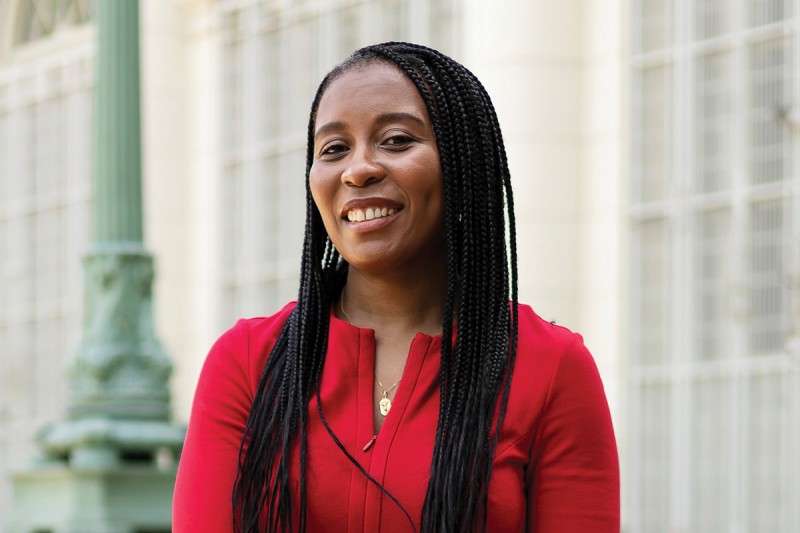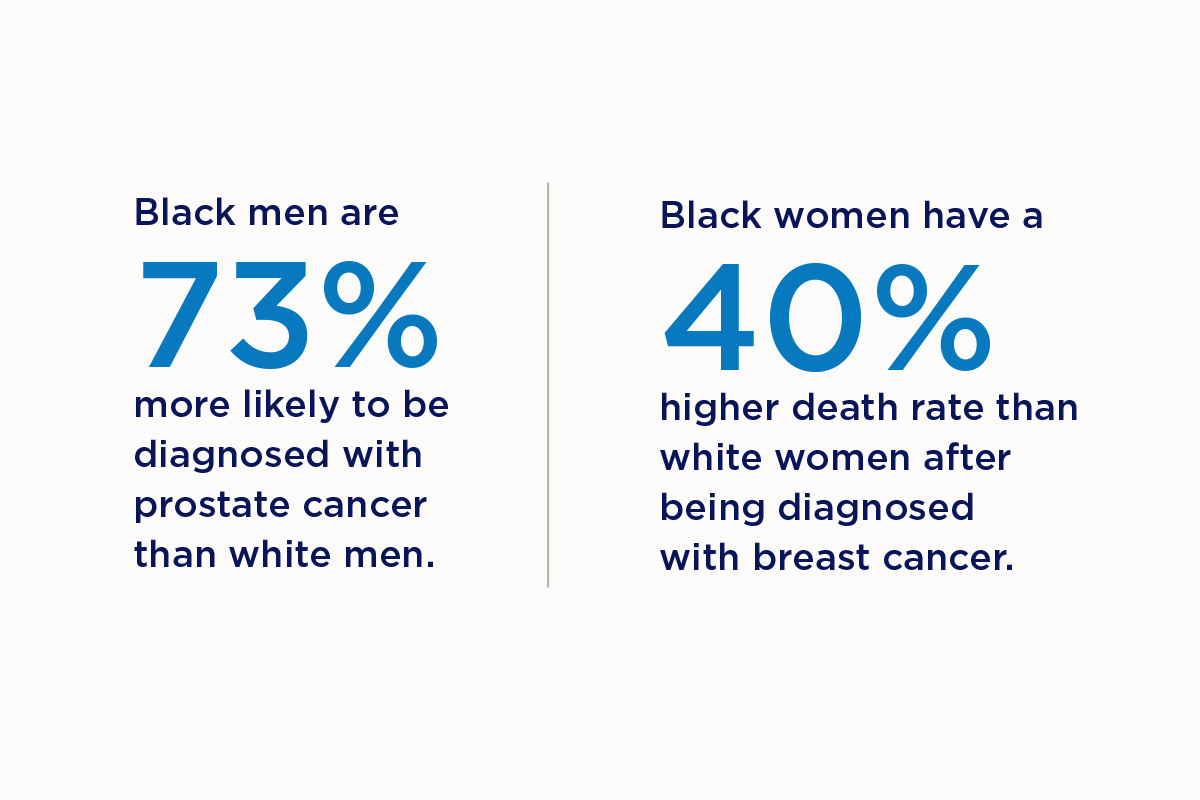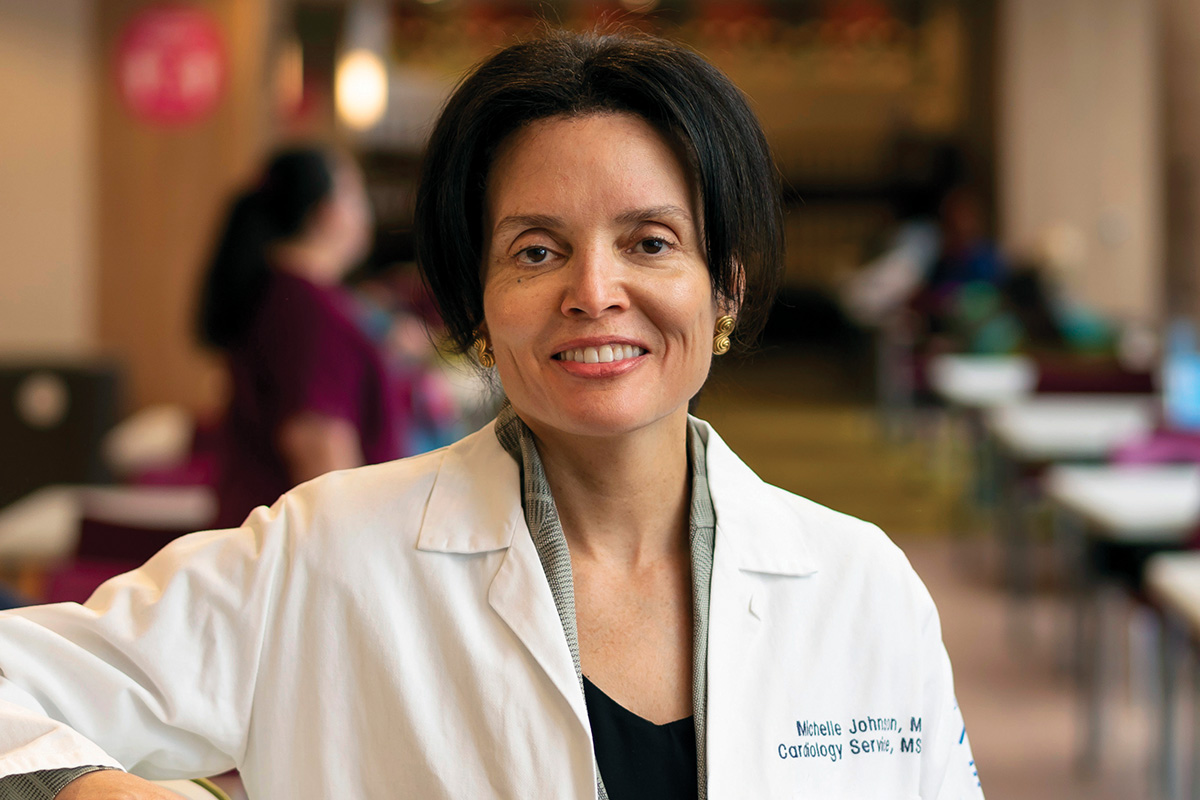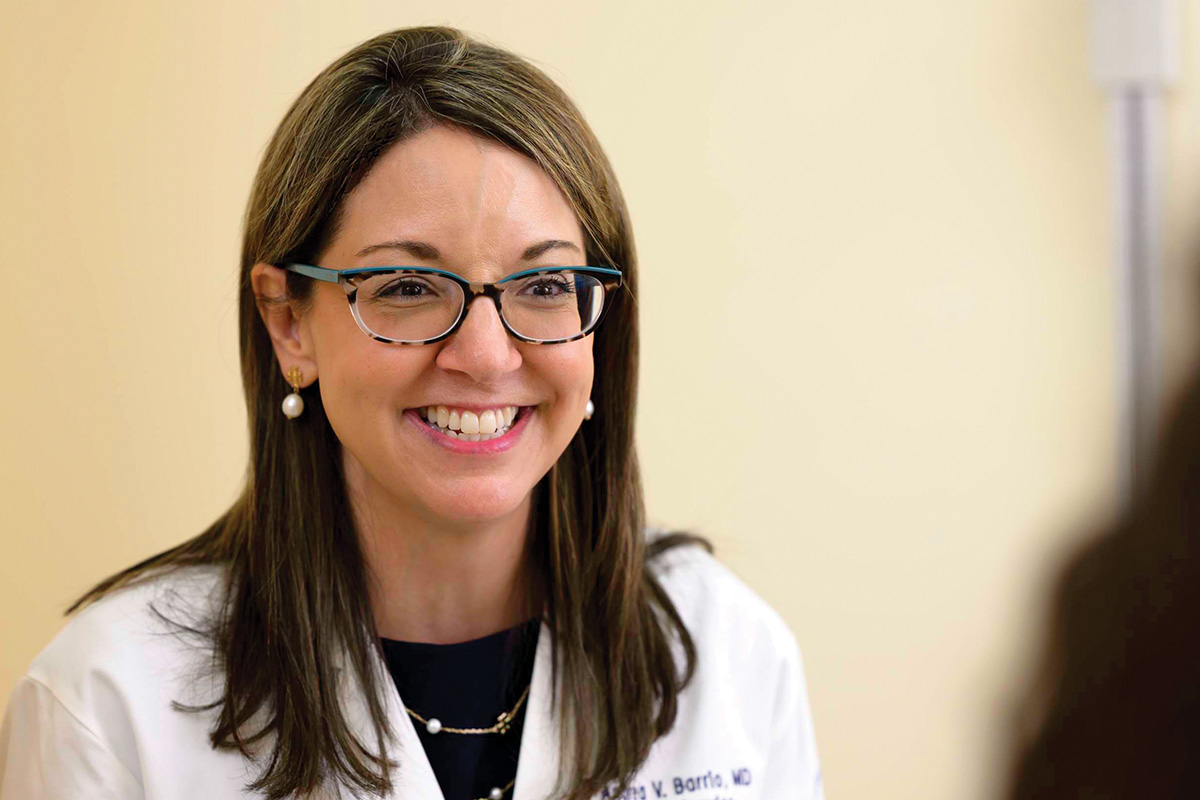
Theresa Langley set three goals when she was diagnosed with aggressive triple-negative breast cancer at just 36 years old.
She wanted to beat her illness.
She wanted to complete a career change and become a teacher.
And she wanted to help solve a glaring problem she found while researching her diagnosis: “I was saddened to see there isn’t a lot of research surrounding Black women like me or Hispanic women who are diagnosed with breast cancer.”
She continues, “If I was able to participate in research to give voice to this group of women — and all people facing breast cancer — I wanted to do it.”
The Research Blind Spot
The problem that Theresa discovered could not be more urgent. Cancer research and clinical trials that investigate treatments for cancer are associated with better outcomes for patients.
But people of color are badly underrepresented in cancer research and have been for decades.
“For most types of cancers, Black people have the highest death rate and shortest survival rate of any racial or ethnic group [in America].”
—The American Cancer Society
Research shows that Black individuals account for 15% of people with cancer, and Hispanics represent 13%. But only around 5% of participants in clinical trials for cancer are Black, and only 3% to 6% are Hispanic.

This lack of representation in research is one factor contributing to the shocking disparities that people of color face with cancer.
The American Cancer Society puts it bluntly: “For most types of cancers, Black people have the highest death rate and shortest survival rate of any racial or ethnic group [in America].”
A Hunch, Confirmed
One consequence of the low representation of people of color in cancer research is that side effects affecting specific populations may go unnoticed.
That could have been the outcome for Debra Edwards after she was diagnosed with breast cancer at age 55.
At MSK, Debra began a treatment known as AC-THP, which combines three chemotherapy drugs with two medications that target the protein HER2. At first, her side effects were manageable. But suddenly, Debra developed shortness of breath. “I couldn’t walk more than half a block,” she recalls.

Her medical oncologist, Gabriella D’Andrea, immediately recognized the symptoms of heart failure and referred Debra to MSK cardiologist Anthony Yu. His work focuses on rare but harmful side effects on the heart that certain breast cancer treatments can induce, including the drugs that Debra was taking.
Dr. Yu had noticed that a disproportionate number of patients at MSK who suffered these side effects were Black women like Debra. “At first, we thought maybe these were chance events,” he recalls. “But as I treated more and more women for heart-related side effects during breast cancer, it became clear there could be an underlying difference between Black patients and patients of other racial groups.”
Dr. Yu, alongside MSK cardiologist Michelle Johnson (MSK Vice Chair for Health Equity) and their colleagues, undertook a review of the therapies and side effects in about 1,400 women who had been treated at MSK for HER2-positive breast cancer between 2004 and 2013. In February 2021, they published the findings online in The American Journal of Cardiology.

Their study found that Black women were nearly two times more likely to have cardiac side effects than white women, even when adjusting for risk factors like high blood pressure, diabetes, and obesity, as well as for socioeconomic differences.
Dr. Johnson says: “There hasn’t yet been a lot of work to look at racial disparities in terms of cardio-oncology. But this research is an exciting move forward to fulfill an important goal of mine and MSK’s.”
Thanks to the insights of her team at MSK, Debra recovered and returned to the life she loves.
Research Plus Outreach
Another MSK research effort is underway to understand one of the most frightening disparities in cancer, involving endometrial cancer.
The disease, which is sometimes called uterine cancer, is slightly more common in white women than in Black women. But Black women are twice as likely to die of it. The number of cases is also on the rise among all women, with the greatest risk among Black women.

To learn what is happening, gynecologic surgeon Carol Brown (Nicholls-Biondi Chair for Health Equity) is working alongside medical oncologist Ying Liu.
Dr. Brown explains that “at MSK, we probably have one of the largest groups of Black female patients in the country where we can analyze the genetics of their endometrial cancer tumors as well as their personal genetics.”
One target coming into focus is that Black women are more often diagnosed with rare but aggressive forms of endometrial cancer. “The kinds of endometrial cancer more often found in Black women are not as well targeted by current treatments,” explains Dr. Liu. “We want to understand what’s happening on the molecular level so we can find better therapies to treat them.”
As that research progresses, Dr. Brown is also helping women right now.
In 2021, she launched the Endometrial Cancer Equity Program to educate Black women about this cancer, help those who are diagnosed find appropriate care, and ultimately find treatments to improve outcomes for all women.
Dr. Brown is also a champion of CHERP, the MSK Cancer Health Equity Research Program. She explains that the program “partners with community oncologists to bring MSK clinical trials to patients in Queens and Brooklyn who may not have access to cutting-edge therapy.”
Theresa’s Goals
As for Theresa Langley, she accomplished her goal of joining cancer research focused on women of color. She participated in a study led by MSK breast surgeon Andrea Barrio to investigate whether race or ethnicity plays a role in lymphedema.

Lymphedema affects 1 in 4 female patients and “is a chronic swelling of the arm that can occur after surgical removal of lymph nodes in the armpit,” explains Dr. Barrio.
After following 276 MSK patients of different races with breast cancer, including Theresa, the first-of-its-kind study found that Black and Hispanic women were at highest risk of developing lymphedema after lymph node removal. Dr. Barrio says, “We can now better identify who is at highest risk and find treatments to minimize that risk.”
Says Theresa, “I hope this helps another person of color who is facing breast cancer — that would be wonderful.” That is precisely what Theresa set out to do. She’s accomplished her other goals, too. Now cancer-free, she’s back to her hardcore workout routine and has become an English teacher in Brooklyn.
She says her decision to join a clinical trial is “helping to push medicine forward — which helps all of us.”

